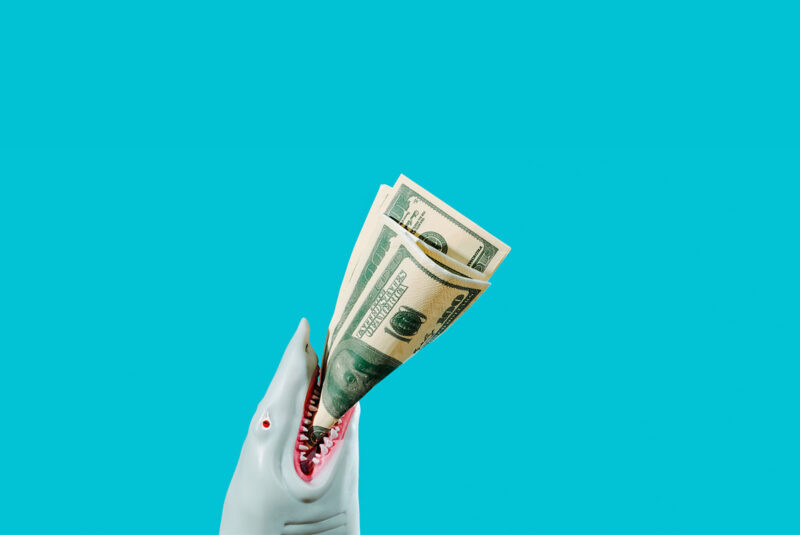Explore your mortgage options
Personal loans can be a helpful way to finance a whole host of things, from a home improvement project to a wedding or even emergency medical bills. If you currently have a personal loan, you may be wondering when and if you can refinance the loan and if refinancing might be a good move.
We’ll give you the scoop on what it means to refinance a personal loan and when refinancing your personal loan might be a good idea for you.
Ready for a Personal Loan?
Applying through Rocket LoansSM is fast and easy.
Checking your options won’t affect your credit score.
Can You Refinance a Personal Loan?
Yes, you can refinance a personal loan. But refinancing may be a bit of a misleading term. When you refinance, you don’t tinker with your existing loan – you get a brand-new loan with brand-new terms.
The general goal when you refinance is to save money on interest. But you can change other loan terms too, like the repayment period or the monthly payment.
Technically, there’s no waiting period to refinance on a personal loan. As long as you’ve started making payments, you can refinance.
But before you decide to refinance, you should carefully consider whether the new interest rate and loan terms will outweigh the upfront costs to refinance, such as the new loan origination fee.
Should You Refinance a Personal Loan?
When you’re deciding whether to refinance your personal loan, it’s helpful to cycle through the pros and cons. We’ve put together a list of the most important ones to help you decide.
PROS of refinancing a personal loan👍
Getting a lower interest rate can save you thousands of dollars over the life of the loan and is one of the primary reasons to consider refinancing.
Refinancing to a lower interest rate or a longer repayment period can lower your monthly loan payment.
When you refinance, you can borrow more money than your original loan amount. If you have a lot of credit card debt or have another higher-interest loan, you can use the extra money to pay it off. This allows you to consolidate your debts into a new loan.
Refinancing gives you the opportunity to change lenders because you’re essentially taking out a new personal loan. This can result in improved customer service depending on the lender.
CONS of refinancing a personal loan👎
Refinancing your personal loan will probably require an origination fee that’s 1% – 10% of the loan amount. This can add significantly to the loan’s cost, especially if you’re borrowing more than you need to refinance.
It’s common for the repayment period to be extended when refinancing. If that’s the case, you’ll be repaying the loan for longer and could end up paying more in interest overall as a result.
Your lender could charge you a prepayment fee when you refinance your personal loan, depending on the original terms of the loan.
How To Refinance Your Personal Loan
Refinancing your personal loan will look very similar to applying for a personal loan. There are six main steps:
1. Gather information
First, get the facts. Figure out how much you still owe and what fees you’d need to pay to refinance. Review your credit score to help you gauge if your credit has improved since you took out the loan. And, whether you’re refinancing with your current lender or a different one, don’t forget to check if your current lender will charge a prepayment fee for refinancing.
2. Shop around for the best rates and terms
Talk to a few lenders. Find the one with the best rates and terms. Decide whether you want to work with an online lender or a traditional lender, like a bank or credit union. When comparing lenders, you should compare the annual percentage rate (APR). This metric combines interest rates and fees to give you the total loan cost.
3. Get prequalified for a personal loan
Ask your lender to prequalify you for the new loan. You’ll be able to see how much you can take out (especially if you want to borrow more money than the original loan amount) and what the loan terms will be.
4. Apply for your new personal loan
Once you’ve found a lender and a loan you like, you’ll fill out your personal loan application. Collect the paperwork and information you’ll need, including your Social Security number and relevant income and credit information.
5. Close out the original loan
Remember, refinancing your personal loan means closing out the original loan and getting a new loan. If you use a different lender for the refinance, your new lender may communicate directly with the current lender to pay off that debt. The new lender might, however, give you a disbursement check for you to pay off the loan.
6. Manage your monthly payments
We can’t stress this enough: Make your payments on time and in full. This will boost your credit score as you pay off your personal loan. Bonus: You’ll avoid having to pay late payment fees and incurring additional interest.
When Should You Refinance Your Personal Loan?
There are plenty of valid reasons to refinance a personal loan. Here are some common situations where you should at least consider the possibility.
Pay your loan off faster
Let’s say you’re in a better financial position today than you were when you took out your personal loan and can afford an increase in your monthly payments. If you refinance to a shorter repayment term, you can pay off your debt faster – getting you even closer to that debt-free lifestyle you may have been contemplating. And, with a shortened loan repayment period, you could save a bundle in interest.
Get a new interest rate
If interest rates have dropped or your credit score has improved, loan refinancing could score you a better interest rate.
Refinancing with an improved credit score could dramatically lower the loan’s interest rate. We’re talking lower monthly payments and more money in your pocket.
Refinancing can also change the type of interest rate you have. Most personal loans have fixed rates, but some have variable rates. Variable rates can be difficult to manage because they can change based on market conditions. Your interest rate could go down, but it could also go up – way up. Every change in rates will affect your monthly payments, which will impact your budget.
If your personal loan has a variable interest rate, you could refinance the loan and lock in a low, fixed rate. This will guard you against any future rate increases and make your monthly payments a whole lot more predictable.
Skip a balloon payment
Some personal loans have monthly payments and a balloon payment (read: a larger-than-average, lump-sum payment) at the end of the loan’s repayment term. The balloon payment could be twice as much as your monthly payment or larger.
If you refinance your personal loan, you may be able to eliminate the balloon payment and opt for more favorable loan terms.
Refinancing a Personal Loan FAQs
Refinancing a personal loan can cause your credit to dip slightly in the short term. However, if you make on-time and in-full payments, you can actually increase your credit score in the long run by refinancing.
It can be. Lowering your interest rate and potentially lowering your monthly payment are good reasons to refinance. However, you have to pay origination fees on the loan again, and you may owe a prepayment penalty. So if your interest rate will be the same or even higher, it’s probably not a good idea.
Technically, the new loan is used to pay off the old one. That’s why there can be prepayment penalties involved with refinancing a personal loan.
This process will vary by lender. They’ll need to review your application and any supporting documents they need. Some lenders can issue a personal loan as quickly as one business day.
Find Lending Options That Meet Your Refinancing Goals
Your financial circumstances should dictate whether refinancing your personal loan is right for you and when is the right time to refinance. A trusted lender can help you come to a decision that takes your finances and your financial goals into consideration.
Get Prequalified for Loans from $2,000 to $45,000
Rocket LoansSM offers personal loans from $2,000 – $45,000. From debt consolidation to unexpected expenses, we’ve got you covered.
Checking your options won’t affect your credit score.
The Short Version
- Personal loans can be refinanced. But refinancing doesn’t mean adjusting the existing terms of the loan, it means securing a new loan with new terms
- Potential pros of refinancing include: lowering your interest rate, lowering your monthly payment and the ability to consolidate debt
- Potential downsides of refinancing include: extending the loan terms, paying more in interest, new origination fees and potential prepayment penalties on the original loan




